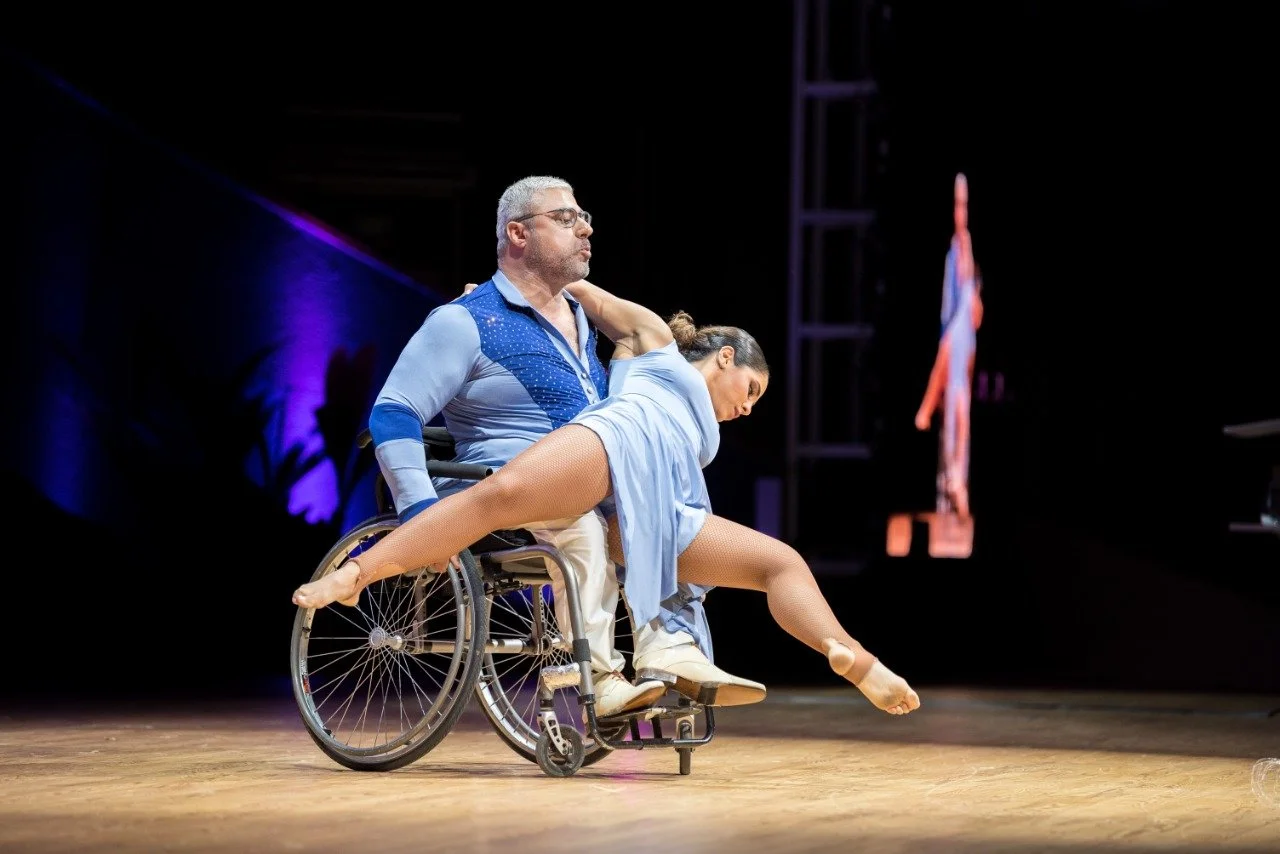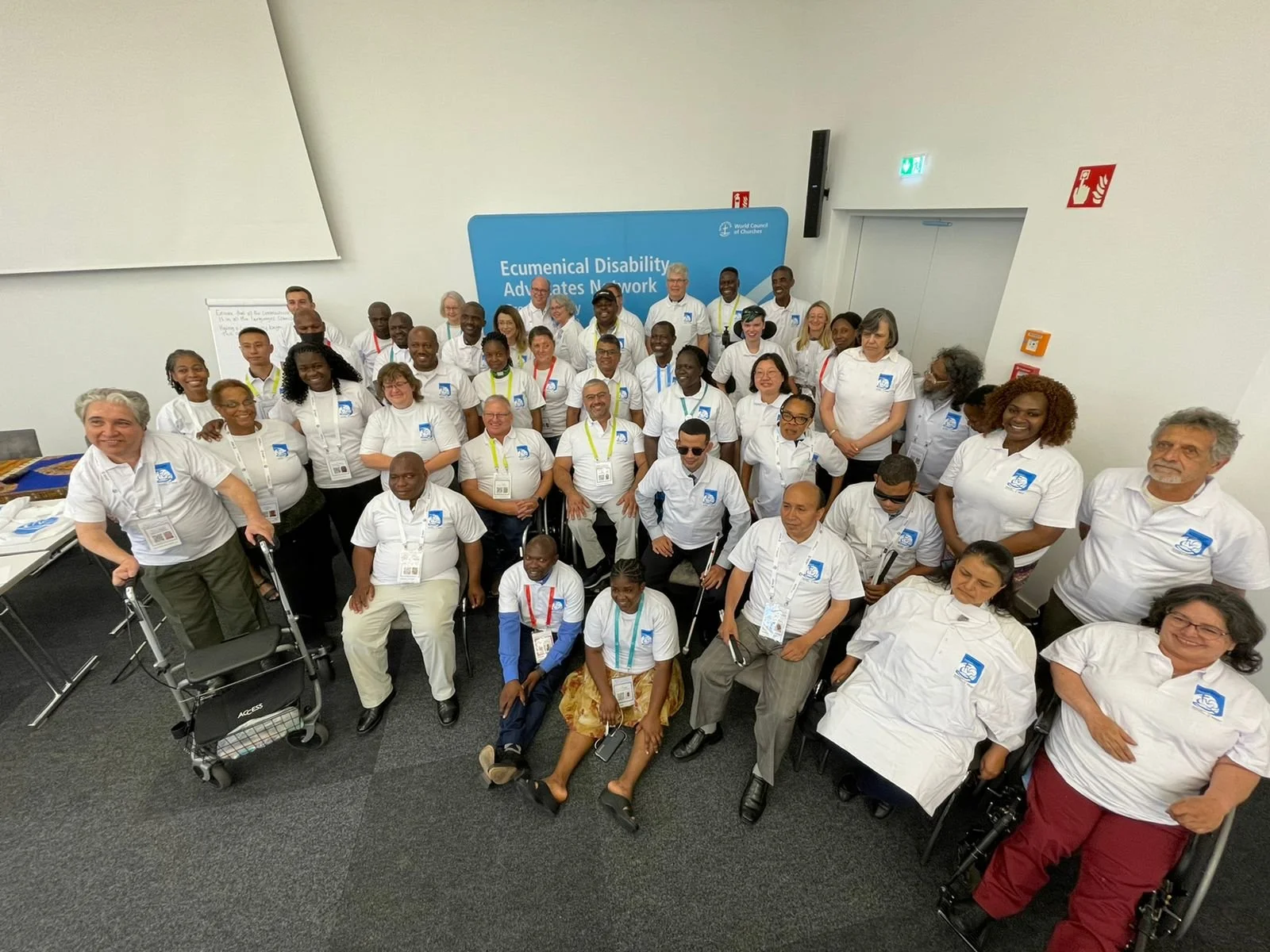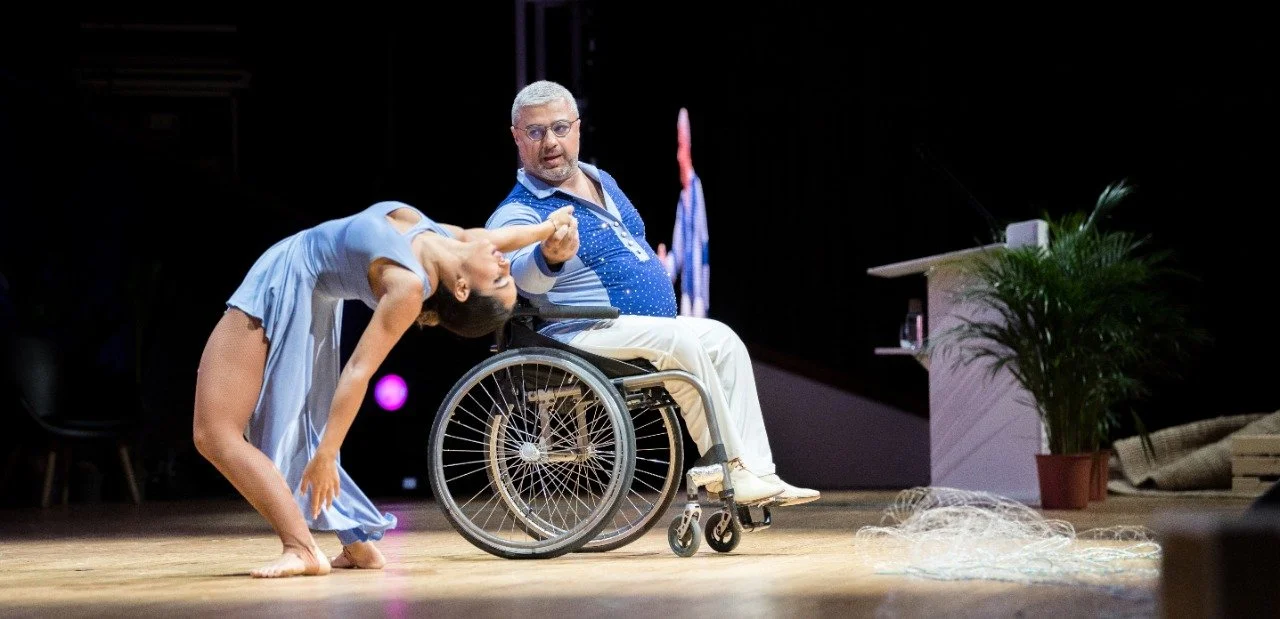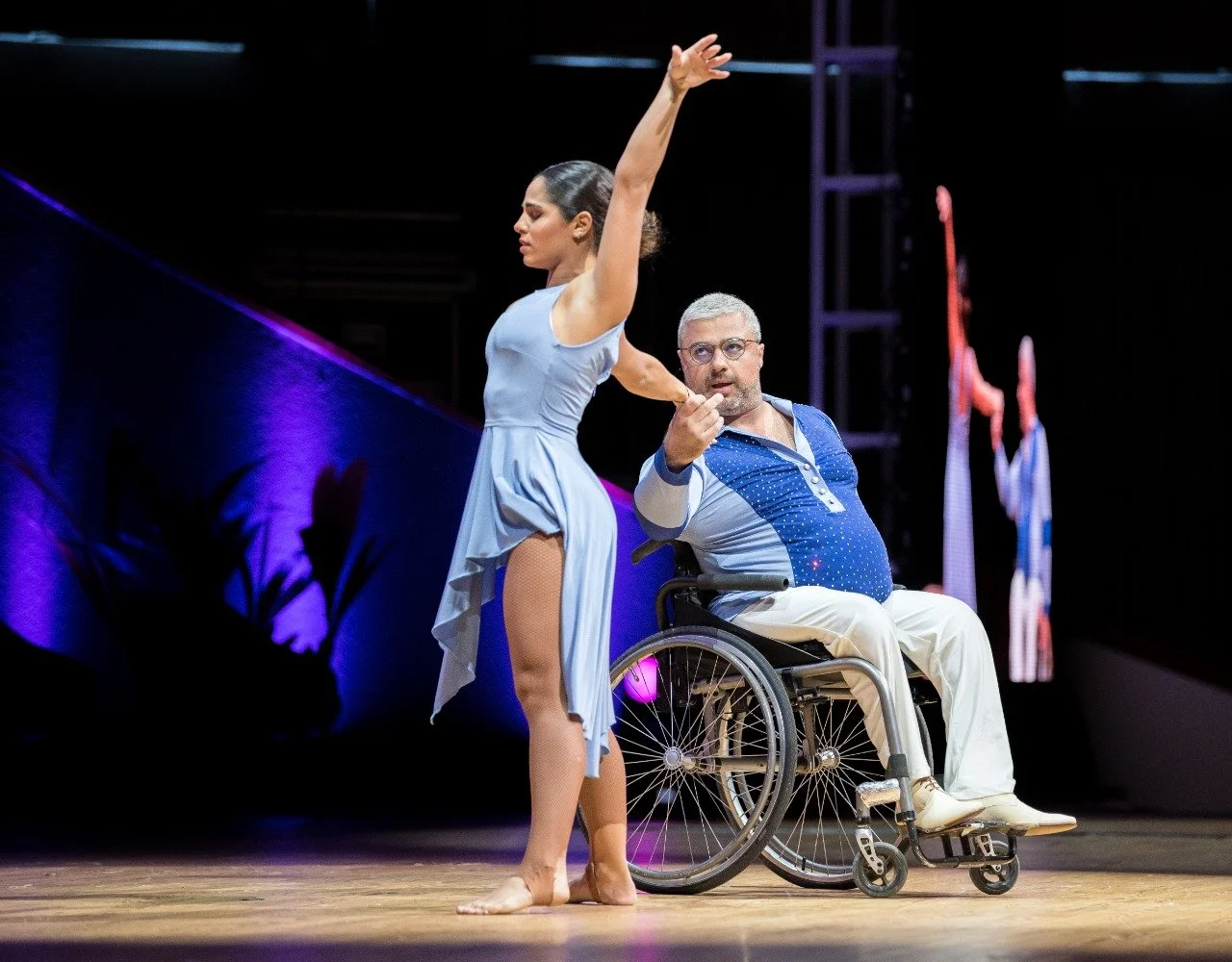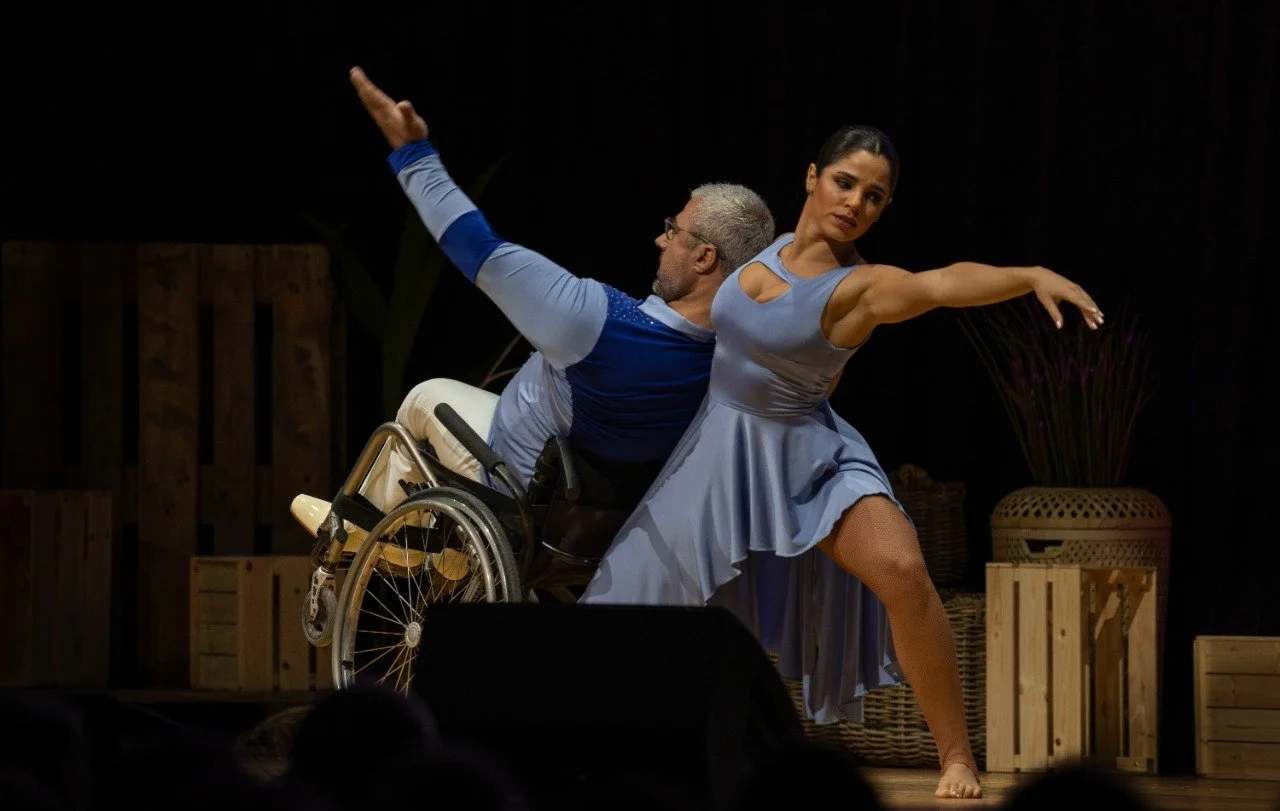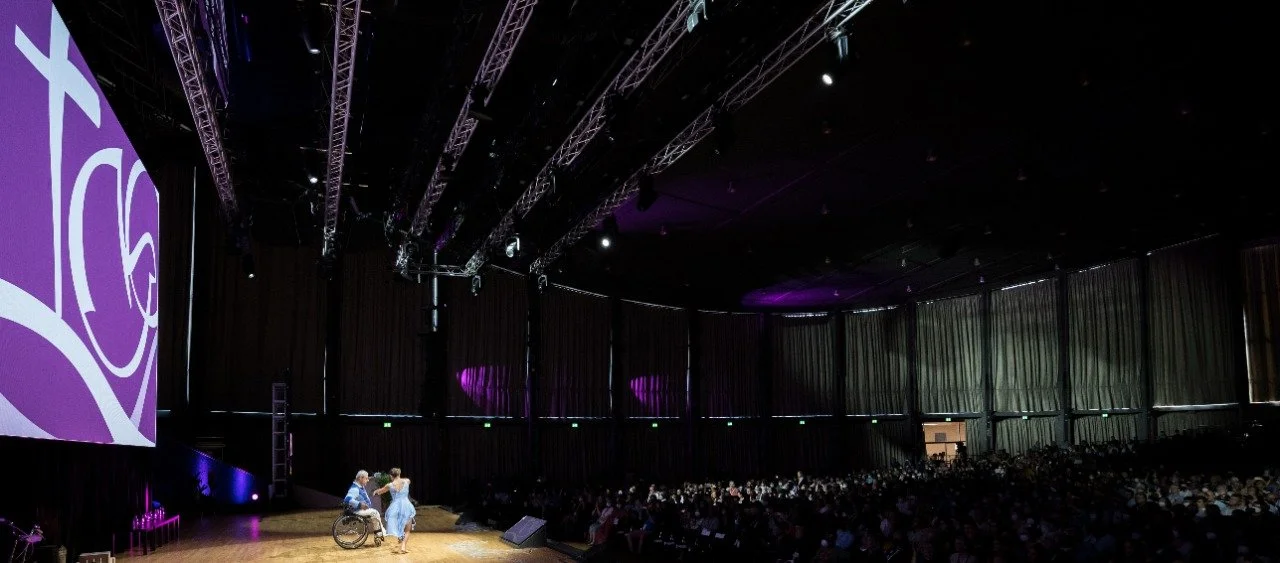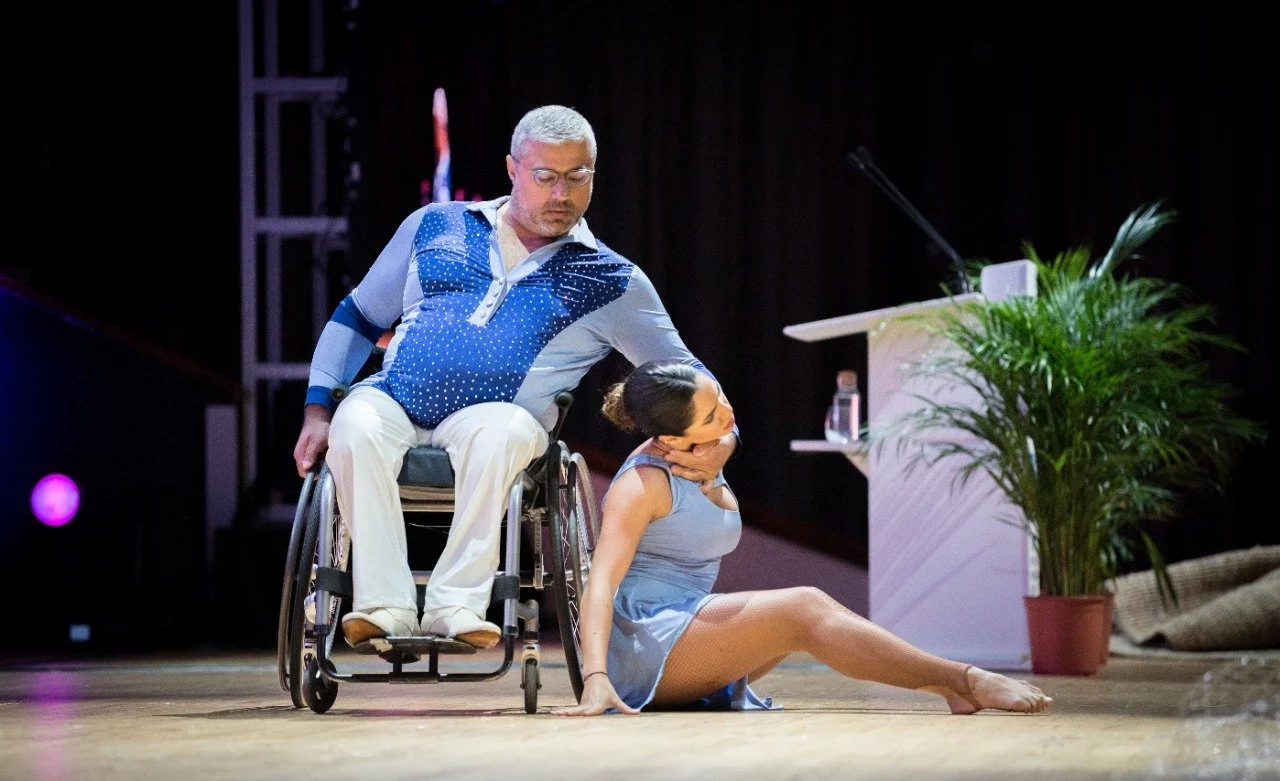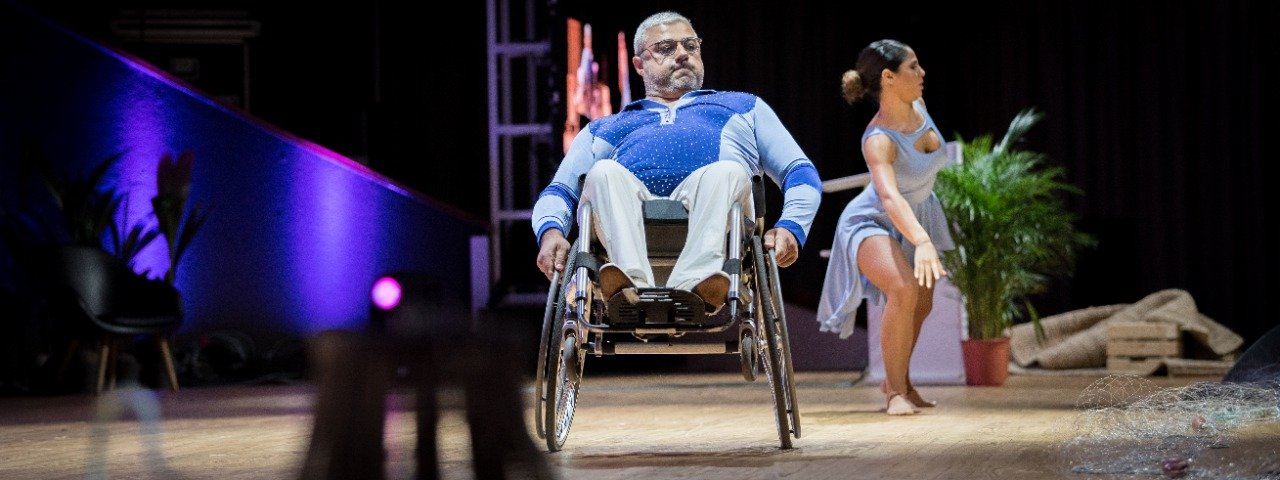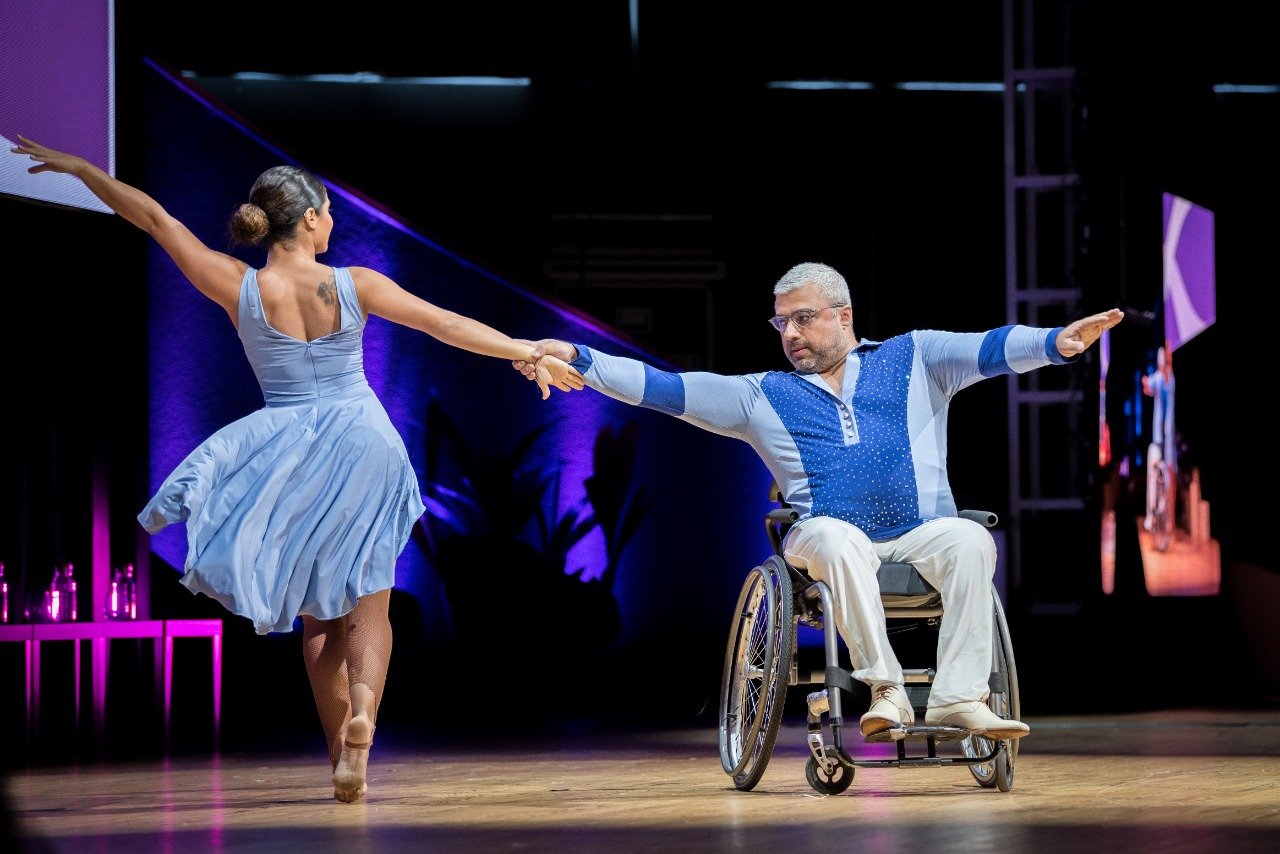From the Middle East to Germany
Fadi Al Halabi: “Nothing about us without us”
Let us break barriers and raise awareness on the role of persons with disabilities in the Church
The Middle East is still far from any type of inclusion!
Photo: Albin Hillert/ World Council of Churches
Communication and Public Relations Department, Karlsruhe - Germany
Their rights are not different from the rights of other citizens, and their effective participation in spiritual, social and economic life... is necessary. Persons with disabilities are important for building and developing societies. But why are they marginalized today? Answers for the question are many. But, what is surely important is the hope they sorrow through their talents and blessings amidst all despair and challenges. Through their continuous determination, persons with disabilities are able to reduce discrimination and emphasize their presence and special role in the Church and society.
Shouldn't the Church be more inclusive by integrating all people, no matter how different they are! Within this context, the World Council of Churches (WCC) launched the Ecumenical Disability Advocates Network (EDAN) in its 8th General Assembly. Its vision is “A church of all and for all, an epitome of a truly inclusive society”. EDAN aims at improving the livelihoods of persons with disabilities through advocating for their inclusion, and active participation in all spiritual, social, economic and structural lives of Church and society.
On the other hand, it seems that the Middle East is still far from any type of inclusion. In fact, persons with disabilities are suffering from many challenges in the Church and social life in the region. What makes matters worse is the exacerbation of the severe economic, social, health, political and security crises... which are impacting them more and making them part of the most vulnerable groups. However, the Middle East is present in the EDAN network, through the active participation of Fadi Al Halabi.
Actually, Fadi was a star at the WCC 11th General Assembly in Karlsruhe, Germany. He danced in his wheelchair with his dance partner Karen Abi Nader, aiming to promote justice and human dignity through inclusion. Fadi and his wheelchair loyal friend, has always sought to change the eastern and international thinking towards persons with disabilities. He aims at achieving a more inclusive society for all. Fadi has also actively participated in the WCC General Assembly and in the EDAN Pre-Assembly during which he raised the concerns of the persons with disabilities from the Middle East to the world.
In an exclusive interview for the MECC website, during the WCC General Assembly, Al Halabi highlighted the EDAN Pre-Assembly and the most important recommendations of its final statement. He also tackled the circumstances of persons with disabilities in the Middle East, as well as ways of inclusion in the Church and social life.
Firstly, how would you describe the activities of the EDAN Pre-Assembly? What are the main points of its final statement?
EDAN Pre-Assembly
The Pre-Assembly’s meetings were successful. Many persons with disabilities participated from different countries of the world. New disabilities also attended for the first time, such as deaf people whose presence was important. Noting that the General Assembly provided during its plenaries a special translation for the deaf people so that they could follow all the activities. Thus, the General Assembly was more integrated than other conferences. As well as, attendance included youth with disabilities, who participated greatly and whose contributions were very important. We believe that in the future youth will be responsible for the EDAN network as they seek to develop it and work for their inclusion in their churches and communities wherever they are.
As for the recommendations of the EDAN Pre-Assembly, the network issued a final statement focusing on its representation in WCC and hence in its various committees such as theological committees... EDAN stressed the need for a better and effective role in conferences and ecumenical work. It is considered an important model for cooperation between Churches, and also between people. EDAN also constitutes an important model for ecumenical work, as well as an example and a reference, because it includes persons with disabilities from different denominations and Church families, whether they were laymen or priests...
The statement also focused on the necessity of including disability issues in the programs of theological institutes, so we may raise awareness on how to deal with disability. Moreover, the statement highlighted the importance of the inclusion of persons with disabilities in the life of the Church generally, so they can contribute to its mission and role everywhere.
What are the practical steps that help persons with disabilities participate effectively in Church leadership or in decision making related to Churches and their affiliated institutions?
The international slogan for persons with disabilities is "Nothing about us without us". In this context, Churches in the world and the Middle East, small parishes, committees and even Patriarchates... have a necessary role. Persons with disabilities should be included in the decisions of the Church’s life, especially in the decisions related to them. Our churches must be prepared to be inclusive, free from all forms of marginalization for persons with disabilities, so these people can have a full presence and participation in the parishes’ lives.
A personalized engineering style for disabilities should be implemented, so persons with disabilities can reach the Church. Mindset should also be changed. Thus, these people will be equal to others, present and contributors to the Church’s life. Their experiences and talents can enrich the Church’s life, like all people. Hence, it is necessary to change the mindset and involve these people wherever they are, whether on a pastoral level or on a broader one. Hence, persons with disabilities can be present in all the Church’s activities and part of the ongoing programs, plans and strategies.
It is also essential that seminaries and universities provide opportunities for persons with disabilities, so we may understand the disability theology. In this context, the World Council of Churches had issued two documents, " A Church of All and for All" and "The Gift of Being". It is important to focus on these documents so we may understand disability and its theology.
How can we help persons with disabilities to join theological institutes?
In fact, it is important to fulfill the needs of persons with disabilities if they decided to study theology, as everyone, or even become monks or priests. In our Church, some of them were able, despite their disabilities, to have pastoral duties. But this was often possible after their ordination as priests. For example, Father Milad in Lebanon, is a person with disabilities, and is very active in many places, such as the Holy Spirit University of Kaslik, and in the South of Lebanon… It is important to break all barriers, whether legal barriers in some texts or psychological barriers which can, in many times, forbid people to join theological studies or to have an easy vocation to be monks or priests...
Photos: Albin Hillert/ World Council of Churches
A lot of persons with disabilities are categorized in the most vulnerable groups due to the impact of the severe crises. What do you think are the solutions for their challenges?
Lebanon and many Arab counties are suffering from many crises which impacted all people. But these crises had more negative repercussions on persons with disabilities. During the Corona pandemic outbreak, these people were isolated, deprived of access to information and medical assistance. They have been greatly affected by the crises, especially on the economic level. So they have been more isolated and were not able to access to education, work, health services and all other essential services for normal daily life.
Therefore, it has become necessary for the Churches to cooperate. But what is also important is the cooperation of the state and the public and private sectors. For example, we may, as much as possible, during the hard times in Lebanon, to secure resilience on the one hand, and inclusion of persons with disabilities in societies on the other hand. So they can live like everyone else, having their rights and essential needs.
What is the role of the Church today towards persons with disabilities? How can they participate in the ecumenical work?
In my opinion and to accompany persons with disabilities, we should raise awareness to priests, monks and lay people with responsibilities in the Church. So they can understand the place and role of persons with disabilities, and their challenges, without any pity towards them. Therefore, it is necessary to implement trainings in order to raise awareness and promote knowledge on how to accompany persons with disabilities. Such trainings should also be organized to learn how we can help parents to be prepared psychologically and practically to accompany their children with disabilities, with the appropriate tools, mindset and spirituality. Therefore, this process is implemented at the level of parishes and Church institutions.
Photos: Albin Hillert/ World Council of Churches
What are the circumstances that persons with disabilities are witnessing in the Middle East? Are there any development initiatives?
Each country of the Middle East has different living circumstances for persons with disabilities. Some countries have difficult situations, as they place these persons among the most marginalized categories. For example, the percentage of persons with disabilities who have a university degree in Lebanon is about 2.2% out of 120,000 people. Likewise, the percentage of persons with disabilities with a school certificate is 2.9%. Therefore, we can say that persons with disabilities are really marginalized, whether in Lebanon or in other Arab countries such as Syria, Iraq and Palestine…
Nevertheless, some countries have been able to develop the circumstances of persons with disabilities through inclusion. Gulf countries have the resources which allow them to implement systems and laws for the inclusion of persons with disabilities in the society. However, the Middle East is still far from any type of inclusion compared to European countries or the United States of America and other countries...
Photos: Albin Hillert/ World Council of Churches
At the end, Fadi Al Halabi highlighted “The Convention for the Rights of Persons with Disabilities (CRPD)”. He said, “Lebanon signed the convention two months ago for the first time as an Arab country, for political reasons which are not related to the content. The Convention includes the rights of persons with disabilities, and is essential for the incorporation of national legislation. Thus, it takes into account all aspects of the persons with disabilities’ lives, whether educational or related to the access to services, employment, political or social rights, or technology services. The Convention covers all these matters and seeks to promote access to an inclusive society that respects persons with disabilities equally.”

